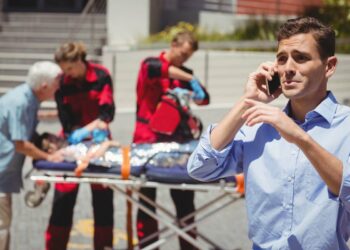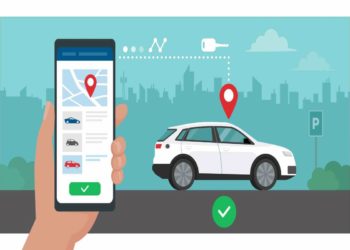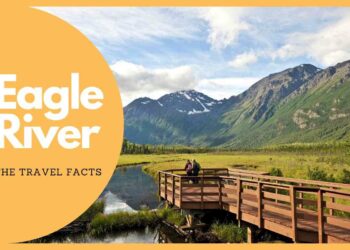Mexico is a vibrant and diverse country with a rich history, culture, and natural beauty. From bustling cities to sandy beaches and ancient ruins, there is something for everyone to enjoy in Mexico. Whether you’re interested in exploring the country’s rich cultural traditions, relaxing on the beach, or trying new foods, Mexico has something to offer.
However, as with any travel destination, it’s important to be prepared and take necessary precautions to ensure a safe and enjoyable trip. In this article, we’ll provide you with some important travel tips for Mexico to help you make the most of your trip.
Here are 28 Mexico travel tips to help make your trip enjoyable and hassle-free:
Table of Contents
Tip 1: Research your destination before you go
It is important to familiarize yourself with the local customs, laws, and any potential safety concerns in the area you will be visiting. You can find this information through the embassy or consulate of Mexico in your home country, travel websites and forums, and local tourism boards. Make sure you research and read reviews of reputed hotels before booking a place to stay.
Tip 2: Purchase travel insurance
Travel insurance can provide financial protection in case of unexpected events such as trip cancellations, medical emergencies, or lost luggage. It is a good idea to purchase travel insurance before you leave to ensure that you are covered while you are traveling.
Tip 3: Keep a copy of important documents with you at all times
Make copies of your passport, driver’s license, and any other important documents, and keep them with you while you are traveling. This can be helpful in case you lose your original documents or they are stolen. Use a money belt or a secure bag to keep these items with you at all times.
Tip 4: Be aware of local laws and customs
It is important to respect the laws and customs of the country you are visiting. This includes respecting local cultural norms and traditions, as well as following local laws and regulations. In Mexico, it is customary to greet people with a handshake or a hug. It is also important to show respect for elders and authority figures.
Tip 5: Learn some basic phrases in Spanish
While many people in Mexico speak English, it is always helpful to know some basic phrases in Spanish to communicate with locals and navigate your way around. Some useful phrases to know include Hola (Hello), ¿Cómo estás? (How are you?), Bien, gracias. ¿Y tú? (Fine, thank you. And you?), ¿Hablas inglés? (Do you speak English?), Sí, un poco. (Yes, a little.), No hablo español muy bien. (I don’t speak Spanish very well.), ¿Cuánto cuesta? (How much does it cost?), Por favor. (Please.), Gracias. (Thank you.), De nada. (You’re welcome.), Lo Siento. (I’m sorry.), ¿Puedo tener la cuenta, por favor? (Can I have the bill, please?).
Tip 6: Be aware of potential health risks and take necessary precautions
Before you travel, it is a good idea to consult with a healthcare provider or the embassy or consulate of Mexico to find out about any potential health risks in the area you will be visiting. This can help you take the necessary precautions, such as getting vaccinated or carrying a basic first-aid kit.
Tip 7: Avoid ice in drinks and tap water
To avoid getting sick from contaminated water, it is important to drink bottled water and avoid using ice in drinks. If the ice is handled improperly, it can become contaminated with bacteria or other pathogens. You should also avoid eating raw fruits and vegetables that have been washed in tap water.
Tip 8: Be cautious when eating street food and choose restaurants that appear clean and well-maintained
While street food can be a fun and delicious part of traveling, it is important to be cautious and choose vendors that appear clean and well-maintained. It is also a good idea to avoid eating raw or undercooked meats and seafood.
Tip 9: Use sunscreen to protect yourself from the sun
The sun in Mexico can be very strong, particularly during the summer months, and prolonged exposure to the sun can increase the risk of skin cancer and other skin conditions. So it is important to protect yourself from the sun to prevent sunburn and heat stroke. In addition to using sunscreen, it is also advisable to wear protective clothing.
Tip 10: Avoid ice in drinks and tap water
To avoid getting sick from contaminated water, it is important to drink bottled water and avoid using ice in drinks. If the ice is handled improperly, it can become contaminated with bacteria or other pathogens.
Tip 11: Don’t agree to any unexpected offers or invitations from strangers.
Don’t accept drinks from strangers. Be wary of accepting drinks from strangers, as they may be spiked with drugs. Don’t trust strangers who approach you with sob stories. Scammers often use emotional appeals to try and get money from tourists.
Tip 12: Don’t leave valuables in plain sight even in your hotel room
To help protect your valuables, it is a good idea to keep them out of sight in your hotel room. This includes keeping your passport, cash, and other important documents in a safe or locked suitcase or cabinet.
Tip 13: Keep an eye on your belongings and be aware of pickpockets in crowded areas
It is important to keep an eye on your belongings, especially in crowded areas where pickpockets may operate. It is a good idea to keep your valuables in a secure place, such as a money belt or a secure bag.
Tip 14: Be cautious while using transport services
Don’t leave your belongings unattended. Keep an eye on your luggage, especially when traveling through crowded areas or on public transportation. Use reputable transportation services. Choose reputable taxi or car service companies, and make sure to use licensed drivers.
Tip 15: Use caution when using ATMs and protect your PIN from view.
It is generally safer to use ATMs located in banks or other reputable financial institutions, as they may be less likely to be tampered with or compromised. Be sure to cover the keypad with your hand when entering your PIN to prevent anyone from seeing it.
Try to use ATMs during the day when there is more foot traffic and fewer opportunities for criminal activity. Be alert to anyone who may be watching you or trying to distract you while you are using the ATM.
Consider withdrawing smaller amounts of cash at a time to minimize the risk of loss or theft. Make sure to keep track of your ATM transactions and report any discrepancies to your bank as soon as possible.
Tip 16: Be cautious when using public Wi-Fi.
To help protect yourself when using public Wi-Fi in Mexico, you can follow the same precautions as you would in any other location, such as using a virtual private network (VPN) to encrypt your data, avoiding accessing sensitive information over the network, and keeping your device’s security software up to date.
Additionally, it is a good idea to be cautious when connecting to public Wi-Fi networks in Mexico, as there have been instances of hackers setting up fake Wi-Fi networks in order to steal people’s data. To avoid falling victim to this type of attack, be sure to only connect to trusted networks, and be wary of networks that have unusual or suspicious names.
Tip 17: Don’t leave your drinks unattended in bars or clubs.
Be wary of leaving your drink unattended, as they may be spiked with drugs. Always keep the drink in your hand.
Tip 18: Avoid participating in any illegal activities.
Avoid buying counterfeit goods. Counterfeit goods are often of poor quality and may be illegal to purchase. Don’t purchase illegal drugs or participate in drug use.
Tip 19: Use caution when driving, as traffic laws may be different than in your home country.
There are different speed limits for different types of roads in Mexico. For example, on highways, the speed limit is usually 100 km/h (62 mph), while in urban areas, the speed limit is usually 50 km/h (31 mph). It is mandatory for all passengers in a vehicle to wear seat belts, regardless of where they are sitting.
It is illegal to drink and drive in Mexico, and the legal blood alcohol limit is 0.08%. It is illegal to use a mobile phone while driving in Mexico, except when using a hands-free device. In Mexico, drivers must yield to pedestrians at marked or unmarked crosswalks.
Tip 20: Respect local wildlife and avoid disturbing or harassing animals.
Don’t swim with dolphins or other marine animals in captivity.
Tip 21: Avoid swimming in rough surf or alone.
Mexico has several beautiful beaches and swimming spots that are popular with travelers. However, it is important to be cautious when swimming in Mexico, as there are potential risks involved. Risk of drowning, which can occur if you are not a strong swimmer or if you overestimate your swimming ability.
It is important to be aware of your limits and to swim in areas that are designated for swimming, rather than in areas where there may be strong currents or other hazards. Don’t drink and swim.
Tip 22: Use caution when using credit cards.
Only use credit cards in reputable establishments, and make sure to keep an eye on your card at all times to prevent fraud.
Tip 23: Keep your phone charged and with you at all times.
Make sure your phone is charged and with you at all times in case of an emergency.
Tip 24: Don’t take pictures of military or police personnel or facilities.
In Mexico, it is generally not advisable to take pictures of military personnel or military installations, as it can be considered a security risk. Military personnel and facilities in Mexico are often considered sensitive and off-limits to the general public, and taking pictures of them can be seen as a threat to national security.
Tip 25: Keep your travel plans and itinerary private.
Don’t post your vacation plans on social media to avoid any stalking instances.
Tip 26: Be aware of the potential for natural disasters and follow local safety guidelines.
Be prepared for natural disasters. Mexico can be prone to natural disasters such as earthquakes and hurricanes, so make sure to have a plan in place in case of an emergency.
Tip 27: Register your trip with the embassy or consulate of Mexico in your home country.
By registering your trip with the embassy or consulate of Mexico in your home country, you are providing the embassy with your contact information and details about your trip, such as your intended dates of travel and the cities you will be visiting. This information can be used to contact you in case of an emergency, such as a natural disaster or a family emergency, or to provide assistance if you encounter any problems while you are in Mexico.
Tip 28: Use common sense and take steps to protect your safety
To help ensure your safety while traveling, use common sense and take steps to protect yourself. This includes staying in well-lit areas at night, avoiding displaying expensive items or large amounts of cash, and keeping an eye on your belongings in crowded areas. Avoid wearing expensive jewelry or carrying around large amounts of cash, as this can make you a target for theft.
Overall, Mexico is a wonderful country to visit and offers a wide variety of experiences for travelers. From its stunning beaches and ancient ruins to its rich cultural traditions and delicious cuisine, there is something for everyone to enjoy. By following some simple tips for traveling to Mexico and taking necessary precautions, you can ensure a safe and enjoyable trip. Whether you’re planning to visit for a few days or a few weeks, Mexico has something to offer everyone and is sure to be a trip you’ll never forget.
FAQs
Is Mexico a third-world country?
Mexico is a developing country, but it is not considered a third-world country. The term “third world” was originally used during the Cold War to refer to countries that were not aligned with either the capitalist countries of the West or the communist countries of the East.
Today, the term is generally not used in the same way and is considered to be outdated and potentially offensive. Mexico is a middle-income country with a diverse economy and a large and growing middle class. It is a major player in the global economy and is home to many large and influential companies in a variety of industries.
Is Mexico dangerous for tourists?
Mexico can be a safe and enjoyable destination for tourists, but like any country, it is important to exercise caution and be aware of potential risks. Some parts of Mexico have higher levels of crime and violence than others, and it is generally recommended to be more cautious in certain areas, such as certain neighborhoods in larger cities and certain regions along the U.S.-Mexico border.
It is also important to be aware of local laws and customs and to respect the rights and beliefs of others while in Mexico. That being said, millions of tourists visit Mexico each year without incident, and many areas of the country, including popular tourist destinations like Cancun, Cozumel, and Los Cabos, are generally considered safe for travelers.
What are some safety concerns to be aware of when traveling to Mexico?
Some safety concerns to be aware of when traveling to Mexico include crime (such as theft and robbery), natural disasters (such as earthquakes and hurricanes), and health issues (such as food and waterborne illnesses). It’s important to research your destination and be aware of any potential safety concerns before you travel.
How can I protect my belongings while traveling in Mexico?
To protect your belongings while traveling in Mexico, consider using a money belt or secure bag to keep your passport, money, and other important documents with you at all times. Avoid flashing your valuables and keep an eye on your luggage, especially when traveling through crowded areas or on public transportation.
Can I drink tap water in Mexico?
It is generally not safe to drink tap water in Mexico. To avoid getting sick, it’s recommended to stick to bottled water for drinking, brushing your teeth, and even washing fruits and vegetables.
What should I do if I encounter a natural disaster while traveling in Mexico?
If you encounter a natural disaster while traveling in Mexico, stay calm and follow any instructions provided by local authorities. If you are in a hotel or other accommodation, follow the emergency procedures outlined by the staff. If you are outside, seek shelter in a sturdy building and avoid areas prone to flooding or landslides.
How can I protect myself from crime while traveling in Mexico?
To protect yourself from crime while traveling in Mexico, be aware of your surroundings and take common-sense precautions such as avoiding walking alone at night, especially in unfamiliar areas. Avoid flashing your valuables and keep your passport, money, and other important documents safe. Use reputable transportation services and choose well-known, tourist-friendly areas to minimize the risk of crime.














